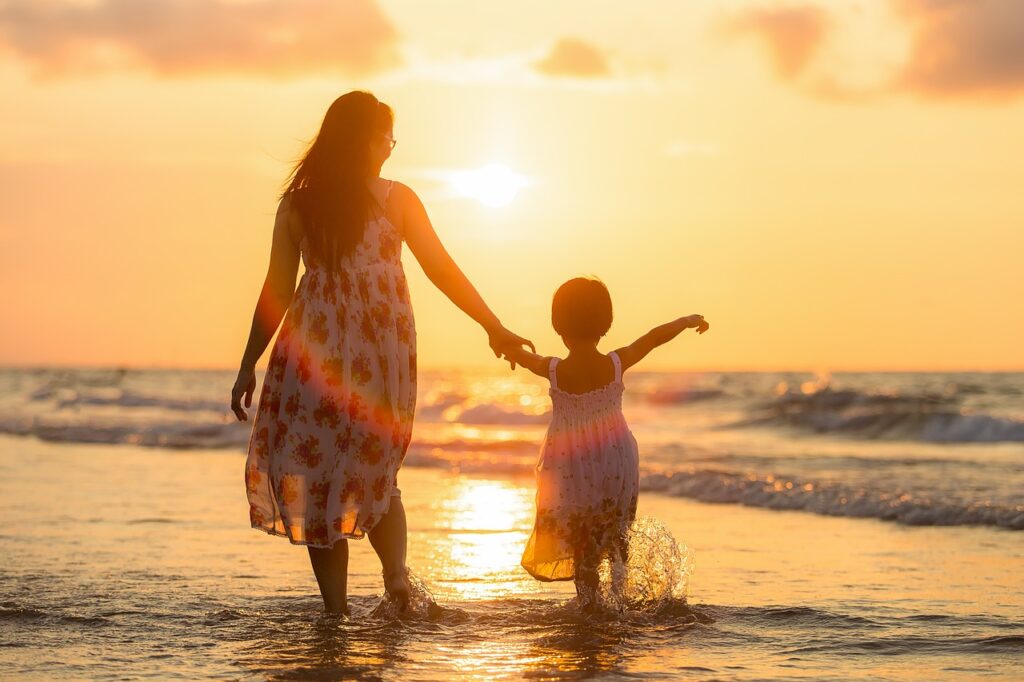The first five years of a child’s life are often called the most crucial developmental period, and for good reason. During this time, 90% of brain development occurs, fundamental patterns of behavior are established, and the foundation for emotional regulation is laid. Yet many parents approach these critical years relying solely on instinct, family patterns, or outdated advice. Here’s why investing in conscious parenting education during this window isn’t just beneficial—it’s essential for your child’s lifelong wellbeing.

1. The Brain Architecture Window is Closing
Neuroscience has revealed that the first five years create the fundamental architecture of the brain. Every interaction, response, and emotional exchange literally shapes neural pathways that will influence your child for life. Conscious parenting teaches you how to support healthy brain development through responsive interactions, emotional attunement, and secure attachment. Miss this window, and you’re essentially trying to renovate a house that’s already been built—possible, but far more difficult and expensive than getting the foundation right from the start.
2. Breaking Generational Patterns Before They Take Root
Most of us parent the way we were parented, unconsciously passing down both positive and negative patterns across generations. The first five years are when these patterns become embedded in your child’s nervous system. Conscious parenting gives you the tools to identify and interrupt harmful generational cycles—whether it’s emotional unavailability, authoritarian control, or anxious overprotection—before they become your child’s default programming. This investment doesn’t just change your child’s life; it changes the trajectory for future generations.
3. Building Emotional Regulation Skills When the Foundation is Most Malleable
Emotional regulation isn’t something children naturally develop—it’s taught through countless micro-interactions with caregivers. In the first five years, children’s brains are extraordinarily plastic and responsive to learning these crucial skills. Conscious parenting teaches you how to co-regulate with your child, model healthy emotional responses, and create safety that allows their nervous system to develop optimal self-regulation abilities. Children who learn these skills early have better relationships, academic success, and mental health throughout their lives.
4. Establishing Secure Attachment When It Matters Most
Secure attachment—the deep trust that caregivers are reliable, responsive, and emotionally available—forms primarily in the first few years of life. This isn’t about being a perfect parent but about being a conscious one who repairs when things go wrong and consistently shows up emotionally. Securely attached children become adults with healthier relationships, better stress management, and greater resilience. Conscious parenting teaches you exactly how to foster this security through your daily interactions.
5. Preventing Behavioral Problems Instead of Managing Them Later
Many behavioral challenges that exhaust parents and require intervention later could be prevented through conscious parenting in the early years. When children feel truly seen, heard, and understood, when their developmental needs are met appropriately, and when they feel emotionally safe, most “difficult” behaviors simply don’t develop. It’s far easier to prevent a dam from cracking than to repair it after it breaks. Conscious parenting helps you address the root causes of challenging behavior before they become entrenched patterns.
6. Building Your Child's Internal Sense of Worth and Capability
The first five years are when children form their core beliefs about themselves, others, and the world. Are they worthy of love? Are they capable of handling challenges? Can they trust others? These fundamental beliefs are shaped by how you respond to their needs, emotions, and developing autonomy. Conscious parenting teaches you how to nurture intrinsic self-worth and confidence through your daily interactions, creating children who don’t need external validation to feel good about themselves.
7. Developing Your Own Emotional Intelligence and Self-Awareness
Conscious parenting isn’t just about techniques—it’s about developing your own emotional intelligence, self-awareness, and capacity for regulation. The first five years force you to confront your own triggers, patterns, and unhealed wounds as they show up in parenting. This period offers an incredible opportunity for personal growth and healing that benefits not just your parenting but every aspect of your life. The investment in conscious parenting education becomes an investment in your own development and wellbeing.
8. Creating Family Dynamics That Support Everyone's Growth
The patterns you establish in your child’s first five years become the foundation of your family culture. Conscious parenting helps you create dynamics based on mutual respect, clear boundaries, emotional safety, and authentic connection rather than control, compliance, or emotional distance. These healthy dynamics don’t just benefit your child—they create a family environment where everyone can thrive and grow rather than merely survive.
9. Maximizing the Return on Your Parenting Investment
Every moment you spend with your young child is an investment in their future. Conscious parenting education helps you maximize the return on this investment by teaching you which interactions truly matter, how to repair when things go wrong, and how to show up in ways that support optimal development. Rather than wondering if you’re doing enough or doing it right, you gain confidence in your parenting choices and their long-term impact.
10. Building Resilience for the Challenges Ahead
The world your children will navigate is complex, fast-changing, and often overwhelming. The emotional regulation, secure attachment, and strong sense of self that conscious parenting helps develop in the first five years become the internal resources that help children handle whatever challenges they face later. You’re not just raising a five-year-old—you’re building the foundation for a capable, resilient, emotionally intelligent adult.

Starting Your Conscious Parenting Journey
Conscious parenting isn’t about perfection or following rigid rules—it’s about developing awareness, intentionality, and responsiveness in your interactions with your child. Start by observing your own reactions and triggers. Notice when you’re responding from your own childhood wounds versus your child’s actual needs.
Invest in books, courses, or coaching that help you understand child development, emotional regulation, and attachment theory. Learn about your child’s developmental stage and what they truly need versus what society tells you they should be doing.
Common Myths About Conscious Parenting
“It’s too permissive.” Conscious parenting actually involves very clear boundaries—they’re just held with empathy and understanding rather than force or manipulation.
“It’s too complicated.” The basics of conscious parenting are simple: see your child as a whole person, validate their emotions, meet their developmental needs, and repair when you mess up.
“I don’t have time for this.” You’re already spending time parenting. Conscious parenting helps you make that time more effective and less stressful for everyone.
The Investment That Pays Lifelong Dividends
Learning conscious parenting might require time, money, and emotional effort in the short term, but consider the alternative costs: years of power struggles, behavioral problems, therapy bills, damaged relationships, and the heartbreak of watching your child struggle with issues that could have been prevented.
The first five years offer a unique window of opportunity that will never come again. Your child’s brain will never be this moldable, their patterns never this changeable, their need for you never this complete. This isn’t just an investment in better parenting—it’s an investment in your child’s entire life trajectory and your lifelong relationship with them.
The question isn’t whether you can afford to learn conscious parenting. The question is whether you can afford not to.
What conscious parenting practices have made the biggest difference in your family? Share your experiences and insights in the comments below—we’re all learning together on this journey.

